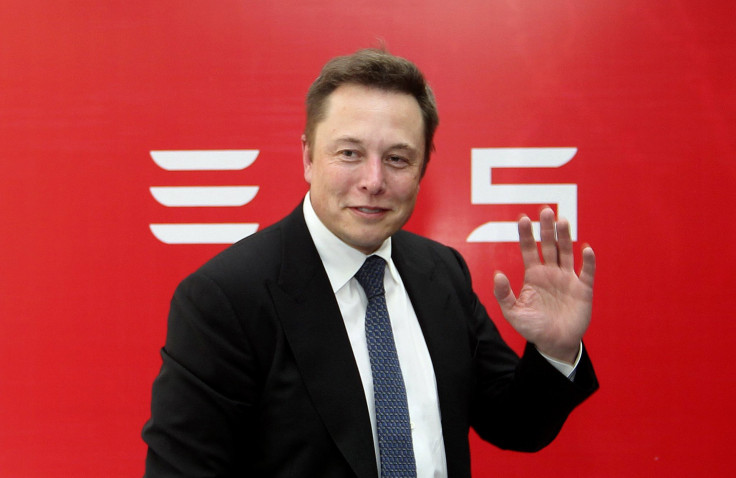What You Should Know About Tesla

In just eight years, Tesla Motors has grown from a small startup struggling for funds to the biggest auto employer in California, this week surpassing Toyota with a workforce of over 6,000 people in the state.
While most people have heard about the company’s brilliant inventor-owner, Elon Musk, and its signature Model S electric car, they might not know much else about this growing company, its related businesses, and why it's not exactly welcome among other automakers.
What makes the Tesla different from other electric cars is the use of small, cylindrical batteries, much like laptop-computer batteries. Cars like the Nissan Leaf use large, flat cells that can be densely packed together, which is easier on the design team. In contrast, Tesla’s decision to go with smaller batteries created the engineering challenge of how to wire them together instead of using a few large batteries.
This has other electric car manufacturers on edge. GM CEO Dan Akerson has even created a taskforce to reverse-engineer Tesla’s design, which may lead to a more affordable electric car.
The workforce increase at Tesla’s plant in California belies the Model S’s paltry sales to date: The Model S first hit the market in 2012, and though it was named Motor Trend's “Car of the Year” in 2013, it has sold only about 40,000 units so far, well shy of Musk’s goal. Perhaps that's because of the price tag. Starting at $70,000 and quickly rising to six figures, it’s a rich person’s toy. Musk says he wants to produce an affordable model, but he thinks that’s still “three years away.”
As a result, some investors suggest that Tesla and Musk should ditch the car business altogether and do what they do best: quick-charging, long-lasting batteries.
DoubleLine Capital founder Jeffrey Gundlach, for one, would like to do business with Musk if he’d forget about making cars and focus on supplying automakers’ batteries. Tesla “could be wildly transformational the way electricity and electromagnets were,” stated Gundlach in a recent interview with Bloomberg News, speaking about the automaker’s proprietary batteries.
Telsa is shopping for a location for the battery factory it says it needs to increase manufacturing capacity in the coming years.
Manufacturing isn’t the only area of the auto industry that Tesla is trying to disrupt: It wants to change the way consumers buy cars by cutting out the middleman.
Traditionally, auto sales is a high-pressure environment where salespeople try to get potential customers into a car and have them drive it off the lot. But that’s not Telsa’s mentality. The people at the Tesla retail stores are there to educate customers, who can then go to the company’s website and buy a car directly from the California company.
That infuriates the auto dealers, who have deep pockets to fight Tesla’s efforts. According to Wired, car-sales industry lobbyists are working diligently to protect the status quo, including pushing laws that require car sales to go through a “middleman franchisee,” otherwise known as a dealer.
Among the broader group of Tesla detractors is New Jersey Governor Chris Christie, who made news in March by blocking Tesla’s controversial direct-to-customer sales strategy. “This administration does not find it appropriate to unilaterally change the way cars are sold in New Jersey without legislation, and Tesla has been aware of this position since the beginning,” Christie spokesman Kevin Roberts said.
New Jersey is the fifth state to ban Tesla’s sales method; Colorado, Texas, Arizona and Virginia have all deemed the direct-to-customer model illegal.
Auto dealers aren’t the only ones Musk is riling up with his status quo-breaking business practices. The same guy who wants you to drive a Tesla wants to get astronauts and their supplies into outer space with his SpaceX spacecraft. And much like Tesla’s competition, SpaceX’s competition doesn’t like Musk’s plans either.
Musk founded SpaceX, or Space Exploration Technologies, in 2002 with the goal of privatizing space activities and eventually getting humans to colonize Mars. Ten years after founding SpaceX, one of Musk’s Dragon capsule’s became the first private craft to dock and deliver cargo to the International Space Station.
Recently, SpaceX has been fighting vigorously for their right to compete for Air Force satellite launch contracts. Musk’s company says its launch systems could save taxpayers around $1 billion a year. The current contract holder, United Launch Alliance, doesn’t like the idea, but much like car consumers, the government is warming up to the idea of more and more SpaceX launches in the future.
Additional reporting by Dennis Lynch
© Copyright IBTimes 2024. All rights reserved.



















